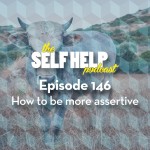Free Will vs Determinism
Are the things that happen to you your choice or are they already determined? Do you have a future you can create or a destiny that you cannot? Is your life and the things that will and have happened to you a written script that has already been written or do you have free will? Is the day and time of your birth and the day and time of your death already set?
This week on the podcast Steph asked Ed and I to discuss this, a very interesting topic.
If we have no free will then there is little point, as far as I can see it, doing anything as the things that happen in life are set so we have little choice other than to make the best of whatever life deals us. On the other hand if freewill does exist then we are the masters of our universe and we can create and do the things that we want.
No freewill = a life where we have problems to endure. Freewill = a life where we have challenges to resolve and overcome.
At Live In The Present we run courses and therapy for people that wish to change some aspect of their life. For some this is easier than for others. For many they can find it the hardest thing in the world. We work from the basis that we all have freewill and that life is not deterministic, but is it?
The way that I see it is that we all have freewill but our free will is limited. This is the same as the nature versus nurture debate. Our genes may limit us and therefore our freewill. If I only have one leg yet desire to run a mile or, I might be short and desire to be tall, I may have curly hair but I want it to be straight. We are all limited or challenged by our genes.
With free will someone with one leg, a “unidexter”, can run or hop a mile, it may just take them longer than someone with two legs, a “biped” but not necessarily. A short person could have their bones lengthened, a painful though successful process. And someone with curly hair can use shampoos and straighteners to get their hair how they want it to look.
People overcome blindness, dyslexia, and cognitive impairment and so on to achieve university degrees and write books. Think about Stephen Hawkins and all that he has achieved despite his disability.
So our ability to act freely may be limited by our genes, circumstances or accidents. It could also be limited by family expectations, education, socialisation, culture, religion, and ethnicity. However we do have the freedom, the freewill, to overcome such limitations.
Concepts precede percepts
However, the biggest limiter of freewill is having, or not having, the concept of freewill in the first place. If as a child I am taught that that I do not have freewill and I believe it then, I will be limited by whatever system I believe to be true. If on the other hand my learning is that I do have freewill, that I am self-determining and that I can achieve whatever it is that I put my mind to the only limit would be the extent of my imagination.
When looking at freewill we must also be aware of religious belief. Concepts of heaven and hell, reward and punishment that will and do shape behaviour. If our belief is that to act violently to the non-believers of our faith will get me a better deal in paradise, valhalla or heaven then warlike behaviour becomes more understandable.
I would say that for all of us to be able to enact freewill what we need is will power, but what is will power?
Well, ‘Power’, as an engineer would define it, is ‘the ability to do work’. Engines and motors are all rated by their ability to complete the task required, they have a power rating, normally described at it’s horse power. Power, when associated to us is our ability to complete the task before us, to do what we need to do. For some the task will be a problem and for others a challenge. Willpower is our ability to enact our freewill, it is freewill power.
When we enact freewill power the tasks that we set ourself can be seen as challenges to be faced and overcome. Challenges can then be related to plans and strategies that take us to the solution or goal.
When we feel that life is deterministic and predetermined it is easy to see the tasks that we have not as challenges but as a problems. It can so easily all become so much more difficult to deal with. At this point people commonly become stuck, demotivated, lose direction and, often give up. This is where the need for freewill power comes in.
A quick Google of ‘Will’ results in…
1. the faculty by which a person decides on and initiates action.”she has an iron will”
2. synonyms: determination, firmness of purpose, fixity of purpose, will power, strength of character, resolution, resolve, resoluteness, purposefulness, single-mindedness, drive, commitment, dedication, doggedness, tenacity, tenaciousness, staying power, backbone, spine.
I see ‘Will’ as persistence and consistence action towards a defined goal.
The goal might be physical, social, intellectual, emotional, financial, business etc,etc, absolutely anything, there are no limits. Here are some tips that might help you get your head around freewill power,
1: Set a goal
To achieve anything you need to be clear about what it is that you want or where you are going. The lack of clarity at the outset will often lead to failure. The clearer the goal the easier the result. If your answer to the question “what do you want?” is “I want to be happy” this will not work for you, it is too vague. To be clear you have to know what it looks like, feels like, smells like, what colour it is, what shape it is.
Tip: Write your goal as a sentence or descriptive paragraph. If you can explain it clearly to another person then you will know what it is.
2: Resources
What do you need? Resources may include ideas and images, plans and organisation, money and other practical resources, market testing to make sure that it works, and the physical manifestation of the idea in the physical world. It is important to realise that other people are also resources.
Tip: Write it all down and share it with someone else. Perhaps a mentor and get their feedback.
3: Plan
A plan is like creating a route that describes the journey you will take to your destination. But plans are never set in stone. A good plan is flexible and can adapt to changes and unforeseen challenges.
Tip: To move a project from idea to goal requires a plan. By using mind maps , spider diagrams are a good way of setting out your ideas on a flat piece of paper that can then be moved into a plan with a timeline.
4: Mentorship
There is no need to reinvent the wheel. On the basis that you can do things the easy way or the hard way, learning from other people’s mistakes can make it much easier. If you talk to other people, use a mentor or a coach you can save your self so much time, avoid making mistakes and allow someone else to feed and energise your freewill.
Tip: You will be amazed at the people who will be prepared to help you. All you have to do is ask. Many people will help you for free some, such as coaches, will charge a fee. You may have someone in mind already, you may need to talk to people and ask around you maybe even family members.
5: Stay focussed
The ability to remain on task will normally mean the ability to live in the present. That requires that you let go of the past and stop worrying about the future. In short, this is the contents of the Live in the Present book. On a daily basis we recommend that you use Mindfulness to enhance your ability to stay focused, this means some ‘zoning’ time every day. The ‘Mindfulness Toolkit’ from the LITP site will be of use to you especially the ‘morning focus’ and the ‘evening review’.
Tip: Take time out every day to clear and focus your mind. We also recommend Headspace, Meditationoasis and One moment meditation.
6: Stay Motivated
Everyone on every project will find times when their energy has gone or is very low so that it is really hard to get going or keep going. So, build this into your time line and your plan so that you have extra time to take it easy when you need to. Look after yourself, take time out and make sure you have some fun. ‘Down time’, (R&R) rest and recuperation, is a good time to review and audit where you are up to and to decide if things need to be changed or adapted.
Tip: Expect to need some ‘down time’, allow for the fact that you will need to take breaks and have fun.
7: Get Networking
Every week groups of people meet to network. These are often business groups but there are other interest groups like writers groups or self help groups. These are really useful to keep you motivated, focused and on track.
Tip: Google your area and find groups of people that you can network with.
8: Get The Freewill Power Habit
Freewill power, like every other behaviour that we have, is a habit. A habit is something that we do without thinking about it, we just do it. If your habit is to keep going, despite the challenges then that it is simply what you do.
Tip: We know that to develop a habit takes an initial 30 days of consistent and persistent activity. This creates new brain cells, that is the neural circuit, that is the new habit. However, to get this habit into longterm memory so that it is there forever takes a further 60 days. To create the will power habit takes 90 days of persistent, consistent behaviour.
Once we get rid of the limits of deterministic thinking we become open to using freewill power. We may think that freewill power is a magical ability that only a few have. The reality is that we all have freewill power once we decide to tap into it. Anyone can contact their freewill power as an everyday habit by working persistently and consistently towards a given goal.
Take care and be free to become all that you desire
Sean x



Trackbacks & Pingbacks
[…] Sean wrote a blog post on this subject. Have a read… […]
Leave a Reply
Want to join the discussion?Feel free to contribute!